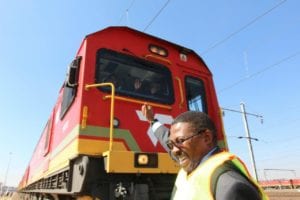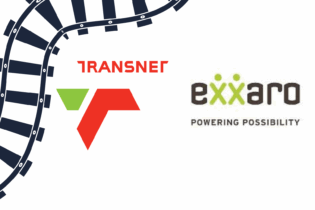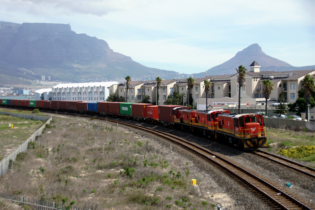A new 200 wagon train service from Transnet Freight Rail (TFR) will enable the Richards Bay Coal Terminal (RBCT) to exceed 81 million tons per annum in the next financial year, should the coal be available. It will run directly from the Richards Bay Coal Terminal (RBCT) to the mines in Mpumalanga.
The new service, called Project Shongololo (millipede), entails bypassing the Ermelo yard leg of the service, which will significantly reduce train handling processes. Prior to the introduction of the service, trains were built at the Ermelo yard through a process involving dispatching 100 empty wagons to the mines for loading and then returned to the Ermelo yard to be built into 200 wagon trains, which are then forwarded to RBCT. This process was cumbersome, involving significant train handling and shunting to couple and de-couple wagons. Siyabonga Gama, TFR Chief Executive, said “This service will drastically reduce cycle times from an average of 58 to 41 hours for locomotives and for wagons a decrease from 63 to 48 hours.” “Decreasing the handling processes of trains will allow for higher reliability which will equate to improved sustainability and service predictability. This is part of the scheduled railway philosophy introduced by TFR two years ago”.Pragasen Pillay,Project Manager, adds “The service will increase weekly railed export coal capacity from the current 1.4 million tons (mt) per week to a potential capacity 1.85 mt per week, equating to a 30% increase on current capacity. The number of export coal trains per day will increase from 25 to a potential 32 trains. And moving into the 4th quarter of this year we will see 34 trains per day”.
“This will give confidence and guarantee the delivery of 1.7 million tons per week. As TFR ramps up in the 4th quarter, this capacity will increase to 1.95 million tons per week. This will enable the Company to provide capacity to emerging miners.” Transnet Freight Rail, will now be poised to deliver for the coal sector, both domestic and export, in excess of 2 million tons per week – an annualised delivery of 96 million tons. The service will additionally free up train slots which can be utilised to address other domestic demands, such as coal for Eskom’s Majuba Power Station. Customers can now increase production by making investments to ramp up efficiencies in their operations because of the increased capacity available to them. Coal stemming from the Lephalale and Waterberg regions will also enjoy the benefits of this unlocked potential. In addition, the de-bottling of Ermelo will allow TFR to run longer General Freight trains thus increasing capacity for general freight business as well. For example, chrome traffic from Pyramid South will be increased from 75 to 100 wagon trains, which translates to 1 800 tons more per train, as a direct result of the efficiencies introduced to the yard.






